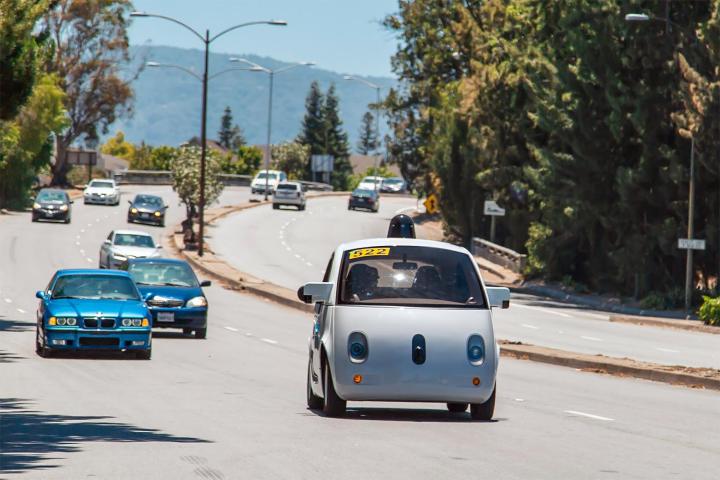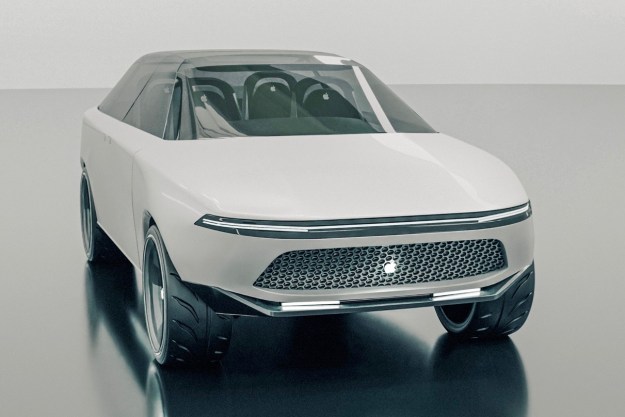
That may be changing, though. Google co-founder Sergey Brin says the company intends to partner with an existing manufacturer to bring self-driving cars to market, according to Autoblog. However, the firm may initially target car-sharing and ride-sharing services more than individual owners.
“We’re really focused on working with partners, Brin said. “I expect to bring it to scale, so more partnering, including with top-tier OEMs.”
The tiny pod-mobiles currently plying California and Texas roads could serve as the blueprint for a production self-driving car, but Google may have to make some alterations. Company officials originally wanted to eliminate the steering wheel and pedals, but California regulations required manual controls, and consumers may be uncomfortable with the idea of having no control over their vehicles, anyway.
Brin decided that cars will keep their steering wheels, for now at least. He also discussed the possibility of switching autonomous capability on and off. That could give people the opportunity to drive when they want to, or to hand over the controls if they don’t. It would also allow Google and its partner to preempt negative arguments about the loss of driving pleasure, or anxiety about robot overlords.
“I think we need to see both of those worlds, and I think there’s a future for both,” Brin said of the tension between the enjoyment of driving and the theorized efficiency benefits of autonomous cars. To some extent, it’s a future we’re already experiencing. Electronic aids like adaptive cruise control already augment human drivers, and the first wave of autonomous tech, including Tesla’s “Autopilot” and Cadillac’s “Super Cruise,” will still require humans to do a lot of the driving.
Editors' Recommendations
- Tesla Autopilot vs. full self-driving: What’s the difference?
- Watch out: Google Drive may have lost months of data
- Cruise autonomous vehicle drives over woman just after she was hit by another car
- Volkswagen is launching its own self-driving car testing program in the U.S.
- Autonomous cars confused by San Francisco’s fog


